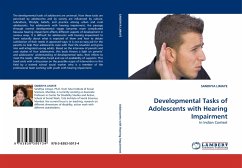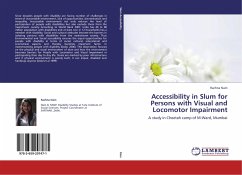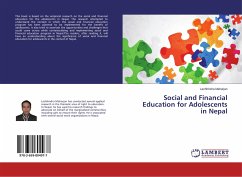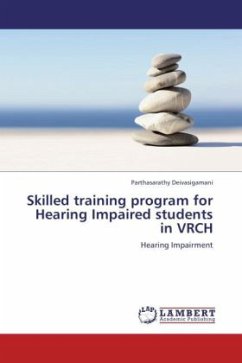The developmental tasks of adolescent are universal. How these tasks are perceived by adolescents and by society are influenced by culture, subculture, lifestyle, beliefs, and practice among urban and rural adolescents. For adolescents with hearing impairment, the passage through normal developmental stages becomes more complicated because hearing impairment affects different aspects of development in various ways. It is difficult for adolescents with hearing impairment to learn naturally about what is expected of them and how to obtain satisfaction of their needs in approved ways. It is not an easy job for the parents to help their adolescents cope with their life situation and grow into well-integrated young adults. Based on the interview of parents and case studies of four adolescents, this book throws a light on parents and adolescents understanding of developmental tasks, their efforts to meet the needs, difficulties faced and use of availability of supports. This book ends with a discussion on the possible scope of intervention in this field by a trained school social worker who is a member of the professional team working with youth with hearing impairment.
Bitte wählen Sie Ihr Anliegen aus.
Rechnungen
Retourenschein anfordern
Bestellstatus
Storno








